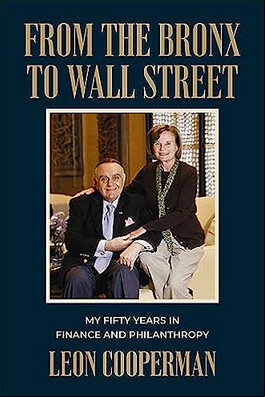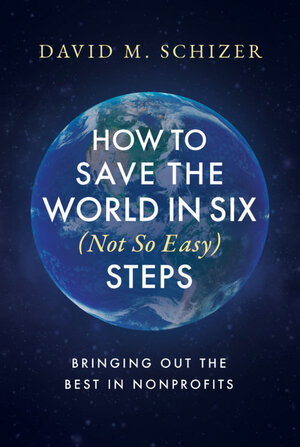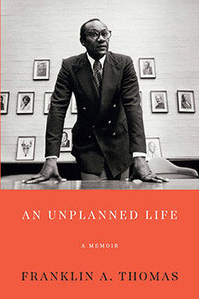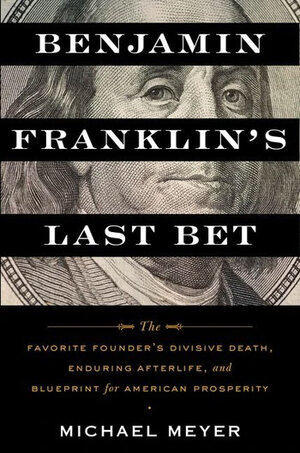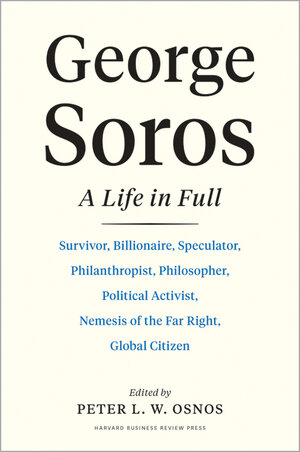From the Bronx to Wall Street: My Fifty Years in Finance and Philanthropy
Leon Cooperman’s rise and longevity as a titan of Wall Street was not inevitable. But born at the right time, in the right place, given a solid, if not pedigreed, education, combined with a bit of good luck, and some very smart choices, the billionaire financier, retired partner at Goldman Sachs, and founder of the Omega Advisors hedge fund made the most of his opportunities. From the Bronx to Wall Street: My Fifty Years in Finance and Philanthropy is Cooperman’s first-hand account of a life that has leveraged every chance, every relationship, every lesson learned to achieve a single-minded goal: being the best at what he does and maximizing his reward.
Cooperman’s tale, as he often repeats, begins in the Bronx in New York City, where his father, a Jewish immigrant from Poland, made a modest living as a plumber. The neighborhood he grew up in would later be dubbed “Fort Apache,” immortalized as a gritty inner-city hellscape by the 1981 film, and Cooperman makes the most of that association for dramatic effect. And while he spent his childhood living in un-air-conditioned tenements and swimming in streams polluted by the effluent from nearby factories, Cooperman’s upbringing in the 1950s also included games of stickball on the street or baseball in the nearby park, as well as a stable home and a top-flight education at a local high school that would also count among its many notable alumni future U.S. secretary of state Colin Powell.
Cooperman’s Bronx was filled with people just like him—hardworking first-generation Americans, often but not exclusively Jewish, of modest means but not poor, educating their children, and striving for better lives. From high school to Hunter College, part of the publicly funded City University of New York, for a high-quality, very low-cost education, Cooperman’s striving led him to dream, not of one day becoming a partner at Goldman Sachs or the founder of a multibillion-dollar hedge fund, but of something far more practical to a plumber’s son—becoming a dentist. And had his family not staked their future on his success, sending him to an accelerated program at the University of Pennsylvania and even buying him expensive equipment they could little afford, his ill-advised choice might have been a comic interlude from a mid-century picaresque novel by Saul Bellow.
But Cooperman’s realization that he had made a mistake, and his readiness to correct it, proved to be a life lesson that has served him well over the past six decades: to understand what interests you and what you are good at, and then to seize the opportunity to excel. He did just that, returning to Hunter and—even though he would graduate with a degree in chemistry—diving headlong into economics and finance. “I found my niche, my passionate interest, and my natural talent,” he writes.
Cooperman’s realization that he had made a mistake, and his readiness to correct it, proved to be a life lesson that has served him well over the past six decades: to understand what interests you and what you are good at, and then to seize the opportunity to excel.
Of course, the practical son of a plumber still took a short-lived job with Xerox in Rochester, New York, even as he went to business school at night to study finance. When the job got in the way of school, recognizing that he was on the wrong path—or more clearly that his wife Toby, whom he had met in college, prompted him to see a better path—Cooperman left Xerox to get a degree from Columbia Business School and never looked back.
In Cooperman’s telling, his time at Columbia was an idyllic meeting of man and moment. Not only was he among an exceptionally bright group of students, among them his close friend Mario Gabelli—another immigrant’s son from the Bronx who went on to become a multibillionaire financier—but also was being taught by a new generation of faculty, just as American finance was entering a new and sustained explosion of wealth and opportunity. A generation earlier, Cooperman might well have not been admitted to an Ivy League business school, but now that he was in, he leveraged the experience, launching his 25-year career with Goldman Sachs. It’s noteworthy that Cooperman, who revels in his public education, not only admits that, without his degree from Columbia, he would never have gotten in the door at Goldman, but also that the same is true today. “I’m not a snob, but the fact is that a degree from a major university is indeed more valuable than a degree from someplace else.”
At once self-aware of the luck of his being in the right place at the right time and of the fact that he is a product of the well-guarded system that begat his success, Cooperman skips over much of what he actually did at Goldman Sachs—apparently market analysis and asset management with ever-increasing responsibilities—until his exit at the very top in 1991. He went on to start Omega Advisors, the investment firm he ran as a hedge fund until 2018 and now operates as a “family office.”
It’s only when Omega runs afoul of the rules—if not the law—first in a 1998 fraud case and again in 2016 for insider trading, that the narrative slows down enough for Cooperman to offer a glimpse behind the curtain, but mostly to state his case and declare a deeply felt sense of betrayal, and above all, his indignation. With two full chapters of an otherwise slim volume focused on these darker moments what's clear is that no matter how much time has passed or how successful he remains, Cooperman holds these challenges to his dignity and reputation very personally. That the chapter on insider trading ends with his decision—at the age of 75—to wind down Omega’s operation as a hedge fund and focus on his family’s finances and philanthropy is a telling reminder that even billionaires can tire of being in the spotlight.
Now 80 years old, Cooperman identifies philanthropy as his second act, and this memoir may be, if not the opening scene, then a dry run at describing what he plans to do next. Cooperman, with his close friends Ken Langone—another son of a plumber—and Gabelli are signatories to the Giving Pledge, the commitment launched by yet another friend, Warren Buffett, with Melinda French Gates and Bill Gates, to give the majority of their wealth in support of philanthropic causes. With an estimated net worth of $2.5 billion, Cooperman has declared that but for a small inheritance to his family, the vast majority of his wealth will be directed in his lifetime to charitable causes and the remainder to the Leon and Toby Cooperman Family Foundation. He has already made notable grants to Columbia University and Hunter College as well as to hospitals, Jewish causes, the performing arts, and programs for children with special needs.
Cooperman pauses to outline the good habits and rules of thumb that make for a good financial analyst. His advice—having a desire to be the best, showing a commitment to research, being ahead of the crowd, and having a good nose for a good idea, among many others—might just as easily apply to philanthropy.
In the closing chapters of From the Bronx to Wall Street, Cooperman pauses to outline the good habits and rules of thumb that make for a good financial analyst. His advice—having a desire to be the best, showing a commitment to research, being ahead of the crowd, and having a good nose for a good idea, among many others—might just as easily apply to philanthropy. And even while this Bronx tale is short on details for what comes next, we can assume Cooperman will be taking his giving as seriously as his investing.
For now, Cooperman frames his philanthropic outlook mostly by quoting from and highlighting the acts of others—Andrew Carnegie, John D. Rockefeller, Alfred P. Sloan, Charles Stewart Mott—who gave up much of their fortunes, in some cases more than a century ago. And if Cooperman’s view of philanthropy harkens back to that bygone era, his embrace of noblesse oblige is meant without irony: “I hope to leave a legacy in the way of young people finding success and becoming good citizens, and in the way of hospitals and schools and charitable nonprofits continuing to further the happiness and progress of mankind.” With billions to spend and a nose for a good idea, Cooperman might just have a second act as extraordinary as the first.
Daniel X Matz is contributing editor at Philanthropy News Digest.


